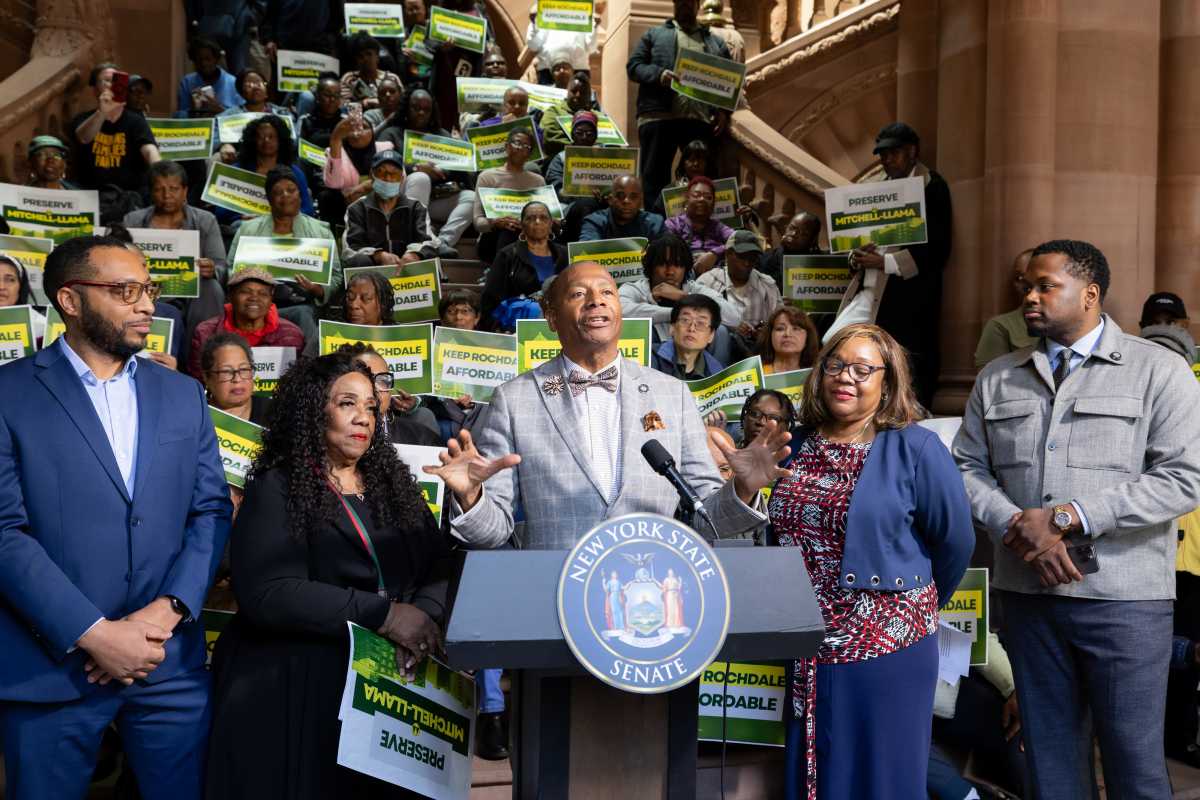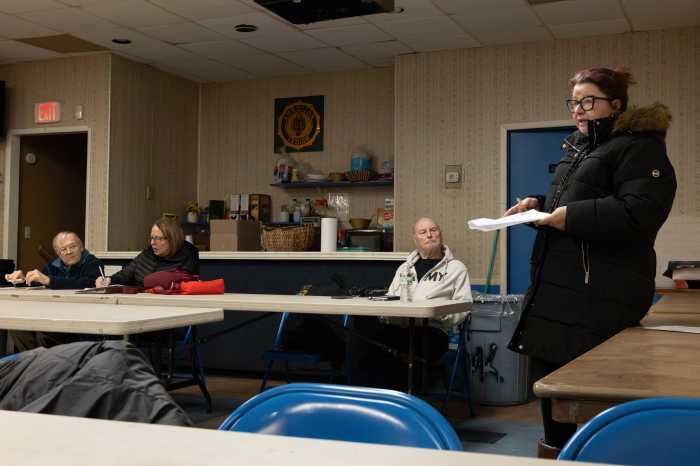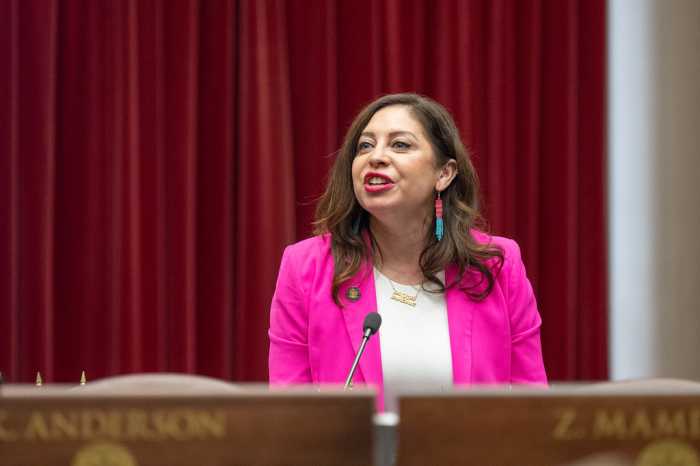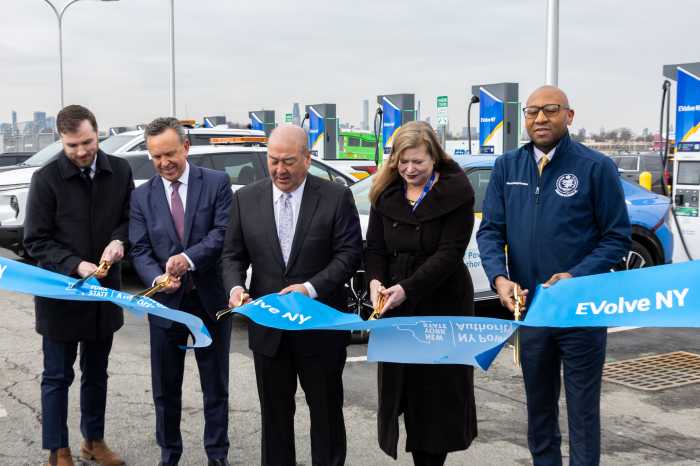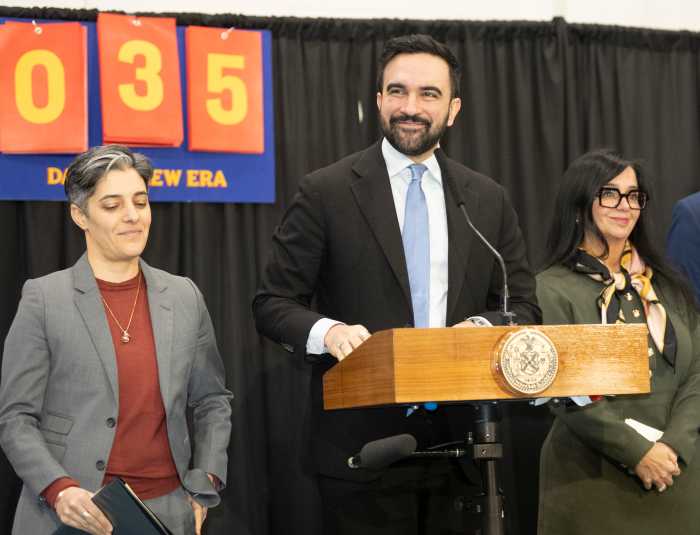More than 100 residents of Rochdale Village in Southeast Queens traveled to the State Capitol on Tuesday, May 27 to demand immediate legislative and budget action to stop a steep 57% increase in carrying charges that they say threatens the future of one of New York City’s largest affordable housing cooperatives.
Carrying charges in Mitchell-Lama cooperatives like Rochdale Village are monthly fees paid by shareholders to cover the building’s operating expenses, including maintenance, utilities, taxes, insurance, and debt service. Unlike traditional rent, carrying charges are pooled to sustain the cooperative as a whole, and are intended to keep housing costs affordable for middle-income residents. A 57% increase in these charges significantly raises the monthly cost of living, placing a heavy burden on fixed-income seniors, working families, and longtime residents who rely on the affordability that the Mitchell-Lama program was designed to ensure.
The protest, organized by residents and supported by local elected officials and housing advocates, brought two busloads of shareholders from the Rochdale Village Mitchell-Lama complex in Jamaica to Albany. The day included a press conference at the Million Dollar Staircase, followed by meetings with state lawmakers and key agency representatives.
“This must not stand,” said State Sen. James Sanders Jr., who represents the 10th Senate District. “Fifty-seven. A 57 % increase in carrying charges, which means basically, in layman’s terms, that your rent has gone up 57 %. That means we have made one of the most premier places in America unaffordable.”
Sanders, speaking directly to residents in his Capitol office before the rally, expressed anger and urgency about the crisis. “I did not come here to lose Rochdale,” he said. “These people are too good of a people to have out in the street. We are not going to see that happen.”
Rochdale Village, a co-op development built in the early 1960s as part of the state’s Mitchell-Lama program, provides affordable homeownership to more than 5,800 households. The community has long served as a vital housing resource for working-class families, seniors and public-sector employees. But residents now face financial strain from what they describe as a perfect storm of rising costs, including a 180% spike in insurance premiums, post-pandemic supply inflation, and a $27 million mandated façade repair project.
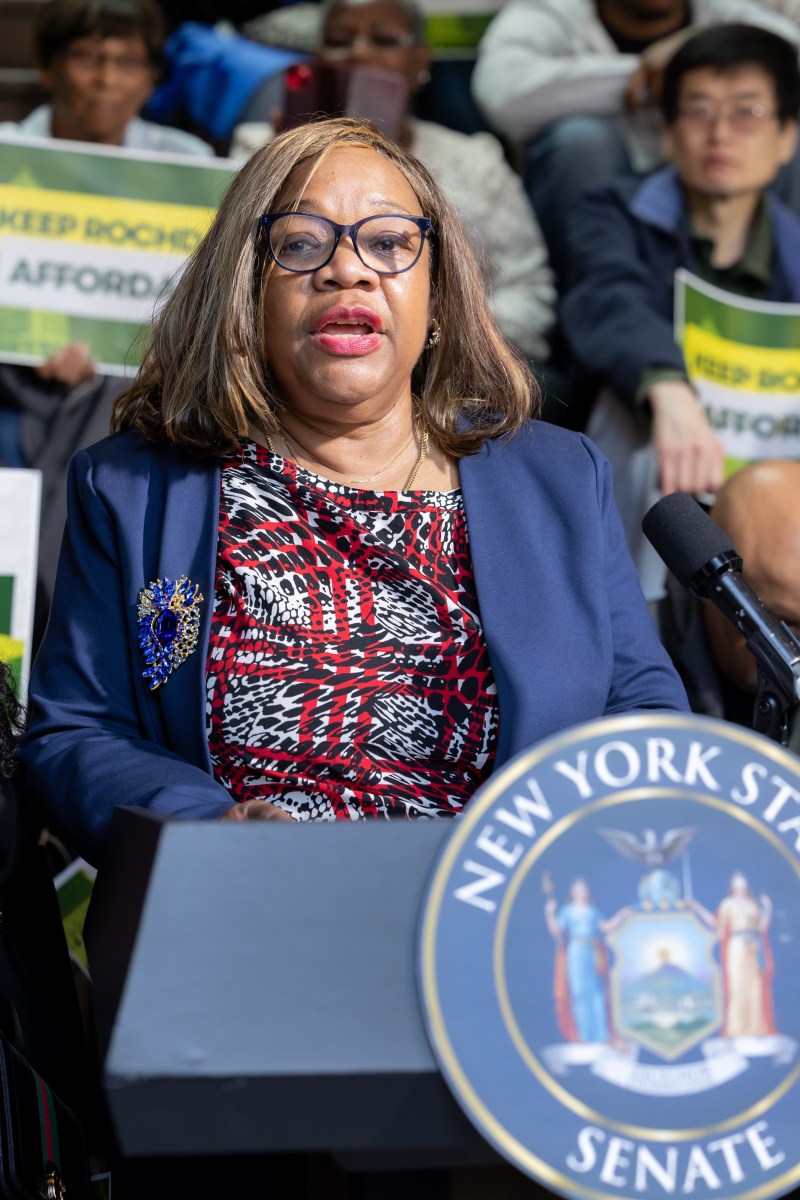
“Standing with Rochdale shareholders to fight a 57% carrying charge increase was both urgent and inspiring,” said Jean Hall, president of the Rochdale Village Board of Directors. “We’re a working-class, middle-income community, and this burden cannot fall on seniors, single parents, and public servants.”
During the press conference, Hall was joined by Jean Randolph-Castro, chair of the co-op’s Community Relations Committee; Kamal Saleem, treasurer of the board; and Ty Hankerson, chief of staff to New York City Council Speaker Adrienne Adams.
“I am devastated,” said Randolph-Castro. “Rochdale Village is at the worst that I’ve ever seen in the last 40 years with this 57% increase. I don’t care if you make $100,000—it’s too much. Speaking for the seniors, we are on a fixed income, and this is too much.”
After the rally, advocacy teams met with representatives from the Governor’s Office, the Division of Homes and Community Renewal (HCR), the Attorney General’s Office, and other Southeast Queens lawmakers to push for intervention and relief. Residents emphasized that over 1,500 units will not receive any financial assistance until at least the next fiscal year, a timeline they described as untenable.
“We had a pretty successful day with Rochdale Village residents,” Sanders said following the Albany visit. “But the fight is far from over—we need a great solution, not just a good one, to keep Rochdale affordable and thriving for the generations to come.”

